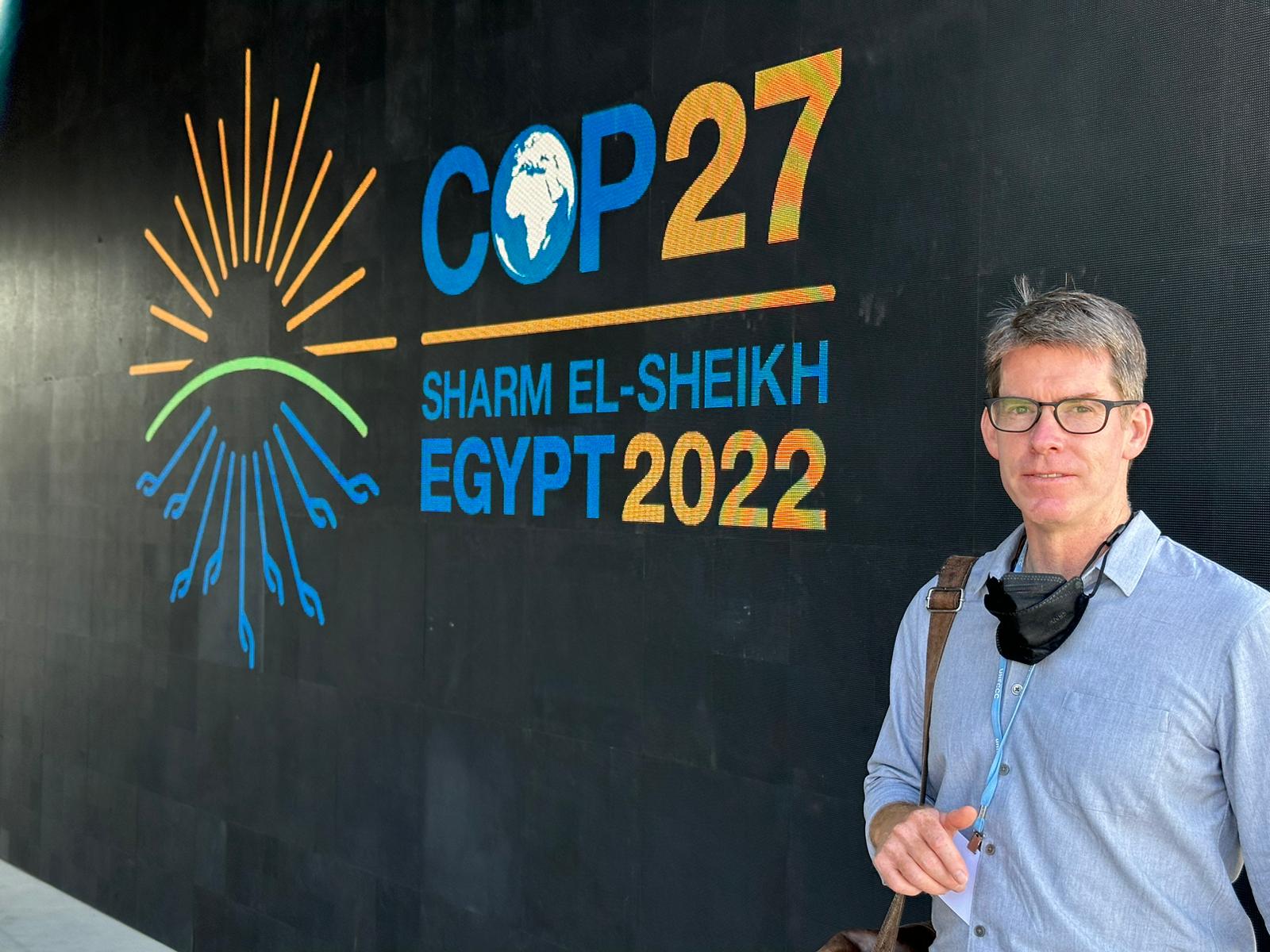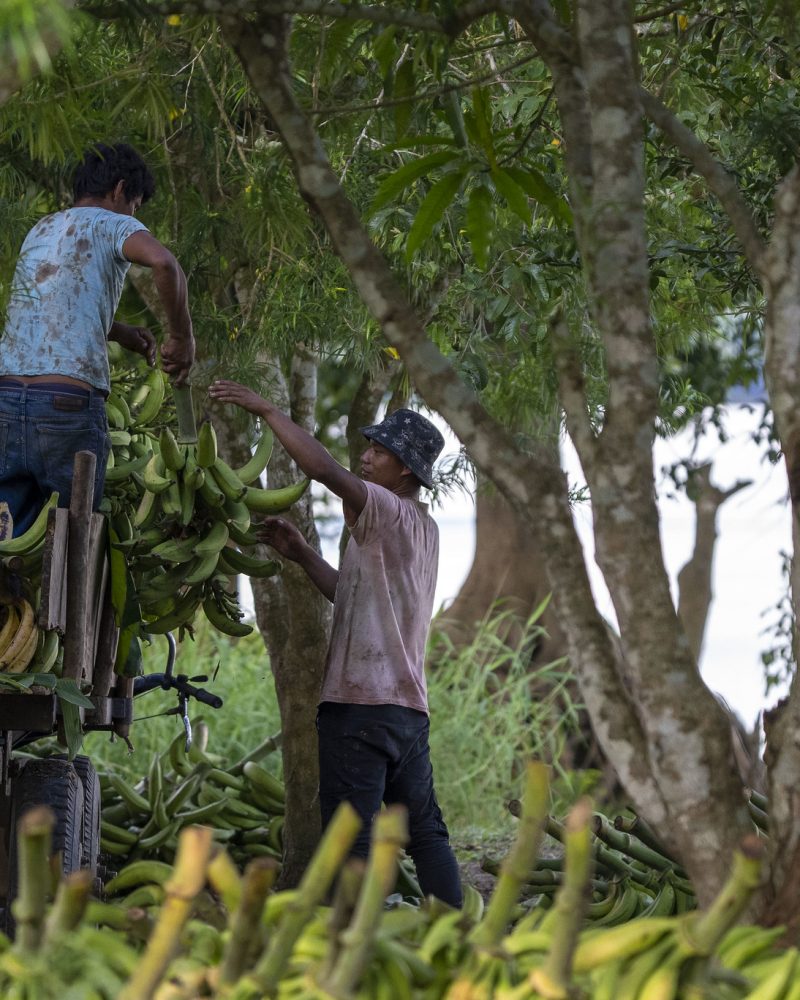Last month, three Environmental Incentives (EI) team members, Jeremy Sokulsky, Amy Gambrill, and Paola Zavala, attended the 27th United Nations Climate Change Conference (COP27) in Sharm el-Sheikh, Egypt. Here each shares their reflections on the global conference.
The Power of Knowledge Networks
Amy Gambrill directs EI’s Strategic Communications and Knowledge Management Portfolio, including projects such as USAID’s Sharing Environment and Energy Knowledge (SEEK) and USAID’s Technical, Operations, and Program Support (TOPS).
After a few years of following developments at COP from afar, it was an incredible experience to join the more than 40,000 in-person participants this year. As the Director of EI’s Strategic Communications and Knowledge Management Portfolio, I’m especially attuned to the power of knowledge networks, and COP is just that—a global meeting of the minds to elevate the most successful strategies and hold everyone accountable to shared climate commitments. Throughout the conference, it was clear the sector must shift from top-down directives to a locally led approach to tackle climate change. To navigate this transition, large donors such as USAID will need established partners to help build and strengthen knowledge networks to make the connection between local priorities and national commitments.
Andrew Dokhole of the Northern Rangelands Trust, a Kenyan organization that supports local conservancies to lead management of community-owned lands, highlighted this during the Resilience Hub’s side event,“Deploying economic incentives to build resilient communities, with examples from Kenya and Colombia.” After hearing about successful strategies for building resilience on the ground in the session, Jeremy Sokulsky and I were able to continue the discussion in person with his colleague. We learned about how the project brought together a local leader and a USAID implementer to advance climate action with knowledge sharing as a central component. Through the network, they found that scientific models demonstrated what pastoralist communities had been saying—building trust between both groups and strengthening the program’s impact.
Designing and shepherding successful knowledge networks will be critical to meet USAID’s ambitious climate and locally led development goals. To help decision-makers, we must generate, use, and share evidence and experience, especially local knowledge. After connecting with actors from across sectors, geographies, and experiences at COP27, I’m motivated to continue EI’s work to help design and connect knowledge from the ground up.
Persistence Is Paramount
Paola Zavala is a Senior Program Cycle Specialist at Environmental Incentives and the Natural Resources Management and Climate Change Program Coordinator for Fundación Futuro Latinoamericano (FFLA).
Participating in COP often brings mixed emotions and expectations. As a representative of Fundación Futuro Latinoamericano (FFLA), an NGO supporting local communities across South America, I’m eager to see agreements that will have immediate impacts on the ground. After years of what seemed like small steps, I began to question what annual UN conferences can achieve. However, it wasn’t until this COP that I realized that some of our goals may be too short-term to appreciate the infinite efforts that many groups—public, private, and community-led—applied to even get a topic on the agenda for governments to discuss.
Take the establishment of the loss and damage fund—this topic has been discussed for decades without concrete results. This year in Sharm el-Sheikh, the parties finally agreed to create a new financial mechanism to fund local communities to overcome climate change impacts. There are still many questions on how the fund will be managed and developed, but it would not exist without persistent effort from dedicated individuals. As civil society organizations, we need to continue our work and demonstrate how locally led actions can contribute to climate change mitigation and adaptation. Even when our efforts don’t provide quick, short-term results, they are essential to move the needle in the long run.
Incentivizing Adaptation Finance
Jeremy Sokulsky is the founder and CEO of Environmental Incentives. He pioneered water quality accounting and habitat exchange programs that created social and financial incentives for private actors to make environmentally beneficial decisions.
Throughout COP, I was stuck and encouraged by the momentum around the transformation to a low-carbon energy sector. New solar and wind projects are often the cheapest sources of energy. Private investment is pouring in, and political will to advance these projects is increasing. In the past fifteen years, developing substantial renewable energy infrastructure has gone from a hypothetical dream to a reality with the backing of global financial institutions.
I wish I could say the same for climate adaptation efforts, but despite years of activists calling for increased investment in adaptation, it still receives only two percent of overall climate financing. Unlike renewable energy, nature-based adaptation isn’t traditionally revenue generating. Thus, these projects fall into the realm of public finance and are often limited by the ability of governments to pay for them using taxpayer and donor funds. The good news is that we’ve seen this challenge before, and we have the tools and models to help public agencies make effective investments in adaptation. It will take the collective experience and creativity of the entire sector to enable adaptation and scale and attract financing, but I am confident we can align incentives to catalyze investment in locally led adaptation.



